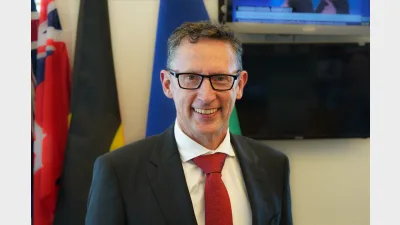Super funds need to ‘step up’ on advice: Jones



Minister for Financial Services, Stephen Jones, has doubled down on plans for super funds to provide advice, saying they need to ‘step up’ when it comes to advice for members.
He has previously discussed in the government’s formal response to the Quality of Advice Review that super funds could provide financial advice to their members. Last week, how super funds charge for financial advice was included in the government’s first Delivering Better Financial Outcomes consultation.
The decision to push for super funds to provide advice has received a mixed response from the industry, but Jones reiterated his stance and called for super funds to “step up” their actions in the space.
Some funds such as Vanguard Super, TelstraSuper, and Aware Super have discussed their advice plans, while others have indicated they will primarily stick to offering intra-fund advice.
Jones referenced both Michelle Levy’s Quality of Advice Review and the Retirement Income Review as having persuaded him on the need for financial advice on retirement income.
“[Super funds] are on a journey and need to step up the service they provide. They are not there yet,” he told Super Review.
“These reviews made it quite clear to me that we have got a big problem. If the answer to that was everyone seeing their neighbourhood financial adviser then I would have done that, but it isn’t because there are only 16,000 of them and they have a business model that is not appropriate to answering that need. Most Australians have needs that are much more simple and we need a different model.
“The existing business model isn’t working, we need the legislation and the regulation put in place to facilitate a new model that is safe, professional, and available.”
He also discussed how advisers working at super funds could potentially move to become full financial advisers at a licensee in the future.
“Super funds need tight governance and regulation around the scope of advice they can provide, how it’s charged, and the qualifications required of the people providing it. They will have narrower qualification and a narrower scope of advice,” Jones told the FAAA Congress.
“I think if we get it right and we are determined to, then we can create a new pathway for someone who has part of the qualification to then move through to become a fully-fledged financial planner. We’ll do it in a really positive way so there is a logical pathway for someone to start at a super fund and then go to work at a licensee, which gives them the incentive to complete the full qualification.”
Recommended for you
The super fund has launched Retirement Manager, a digital advice tool helping members plan income, spending, and retirement confidence with integrated support.
APRA has warned retail super trustees that financial adviser involvement in recommending platform products does not diminish their obligations, as regulators turned the spotlight on the Shield Master Fund and First Guardian Master Fund during a meeting with fund CEOs.
AMP’s chief economist has unveiled a wish list for the Australian government’s Economic Reform Roundtable.
Australian retirees could increase their projected annual incomes between 3 and 51 per cent by incorporating personal and household data into their retirement income strategies, according to new research.










